Capturing The Northern Landscape – Milan Ivanic
Milan Ivanic - Capturing The Northern Landscape
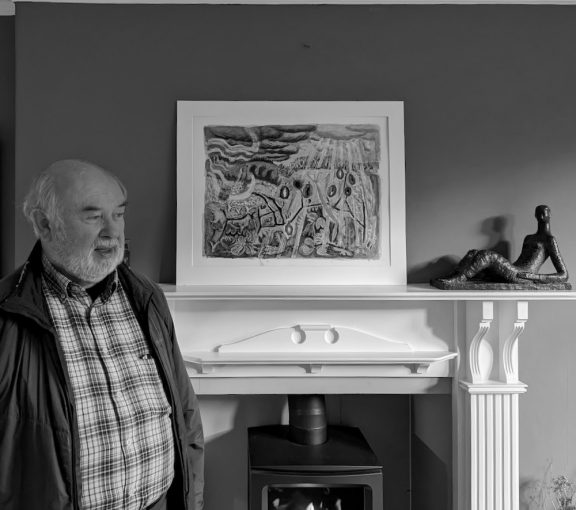
Milan Ivanic
Milan Ivanic grew up in the village of Sebuzin, where the river Elbe travels north into the mountains which divide Czechoslovakia (as it was at that time) from Germany. He came to England in1970 and has lived in Lancaster since 1986.
The group of paintings in this online exhibition are a selection from a larger body of work Milan has undertaken through the changing seasons of 2022.
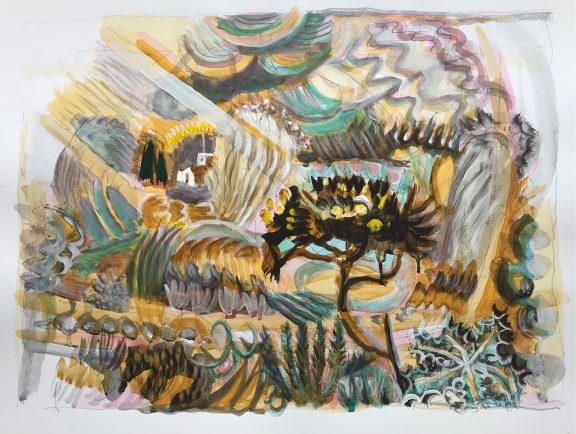
Forest of Bowland
The Forest of Bowland to the east of Lancaster is designated an Area of Outstanding Natural Beauty, a landscape Milan frequently visits to draw and paint. It is an upland landscape of peat moorland, streams and woodland. On a clear day the views from the high road above the village of Quernmore are spectacular. The Lake District is often visible and on occasions both the Isle of Man and Snowdonia. A dramatic and colourful environment, especially in late summer and autumn, with yellow gorse, rowan trees, and rose hips.
In Milan’s painting of Quernmore Church, the roof and tower can just be seen in sunlight, with the gorse bush, grasses and thistle in the foreground.
I love the subjects I am painting. My paintings are an instinctive reaction of sympathy with nature.
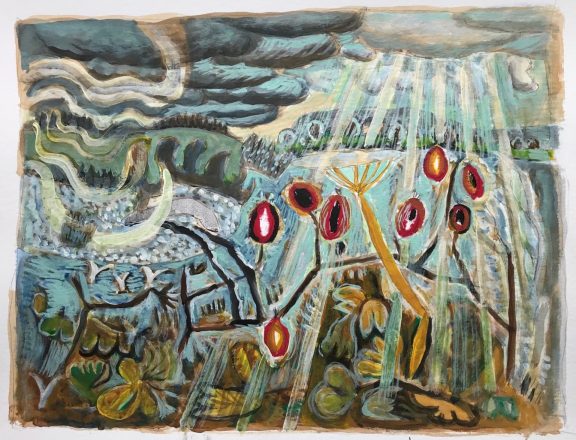
The River Lune and The River Conder
The River Lune, and one of its tributaries the Conder, are tidal rivers entering into Morecambe Bay just south of Lancaster between Glasson Dock and Sunderland Point. Easily accessible, this area provides a constant changing environment, revealing sand banks and mud flats at low tide. The shore line of these tidal rivers provide a rich habitat for a variety of wild plants and waterfowl.
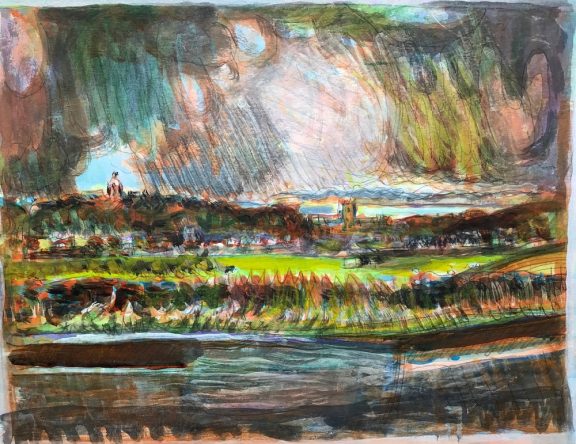
Towards The City
In many of Milan’s paintings in this particular set, various buildings, churches, monuments and castles can be identified in the distance. However, the natural world, the rivers, fields, plantforms, and the light breaking through clouds, appear to be the main focus of interest, as can be seen in the painting: Towards the City. In this work the River Lune can be seen in the foreground and Morecambe Bay and the Lakeland Fells in the distance.
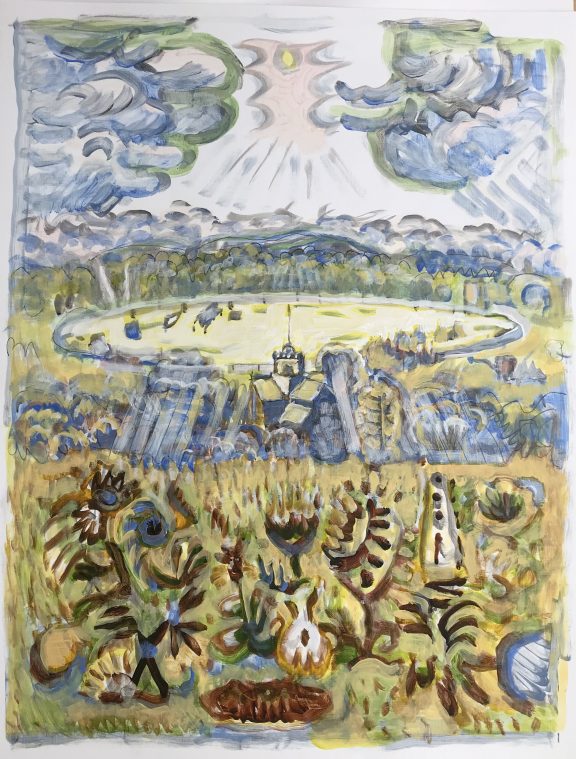
South Cumbria - Cartmel and Arnside
The South Lakeland village of Cartmel, with its racecourse and 12th-century Priory has been the subject of previous paintings by Milan. The painting here is from an unusual vantage point, looking down on the Priory from higher ground. In the foreground of the painting are surreal shaped plant forms,resulting from the extreme heat of summer this year, which also appear in other paintings in this series. The high land of the Lake Fells is visible in the distance.
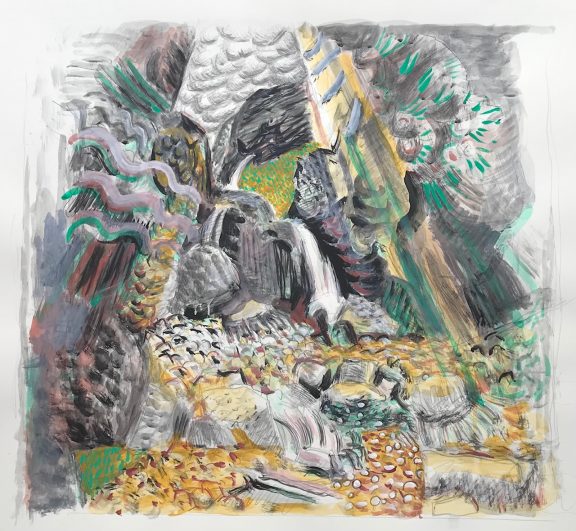
Gordale Scar
Outside of the North West region, Gordale is only thirty-five miles from Lancaster. The limestone ravine close to Malham in North Yorkshire has been painted by numerous artists including J.M.W.Turner, John Ward and John Piper.
Milan’s painting of Gordale, like other works in this Online Exhibition, reveals strong interest in mark making. The paint marks are well defined with expressive lines and hatching, which are like printmaking marks.
Milan had a formal art school training while at the Academy of Fine Arts in Prague and studied etching and printmaking. The paint strokes and lines in his recent paintings are reminiscent of his early pen and ink studies and drypoint etchings.
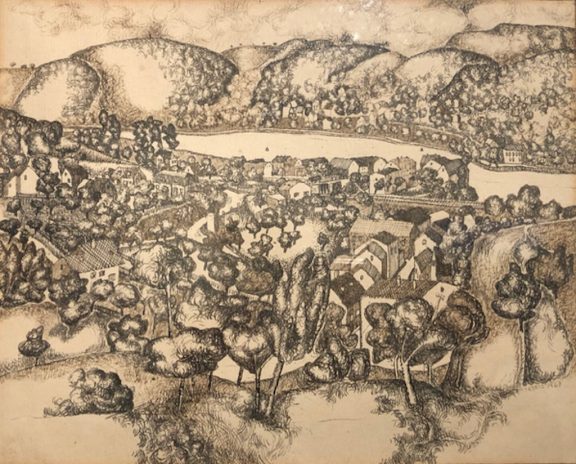
Early pen and ink drawing of Sebuzin
An early pen and ink drawing by Milan of the village of Sebuzin 1967, where the river Elbe travels north into the mountains.
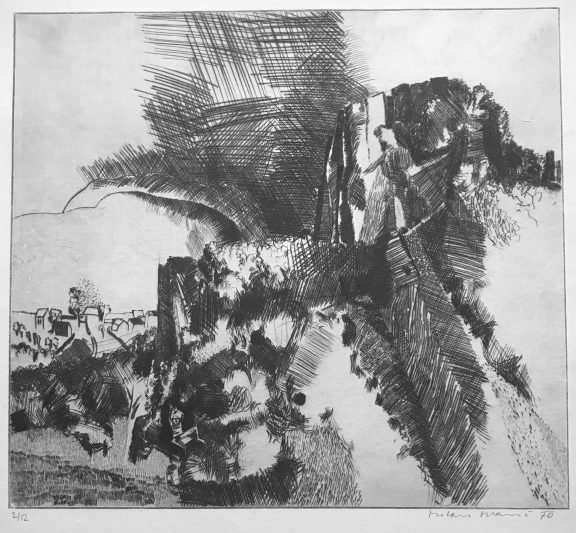
Raven Rock - Drypoint Etching
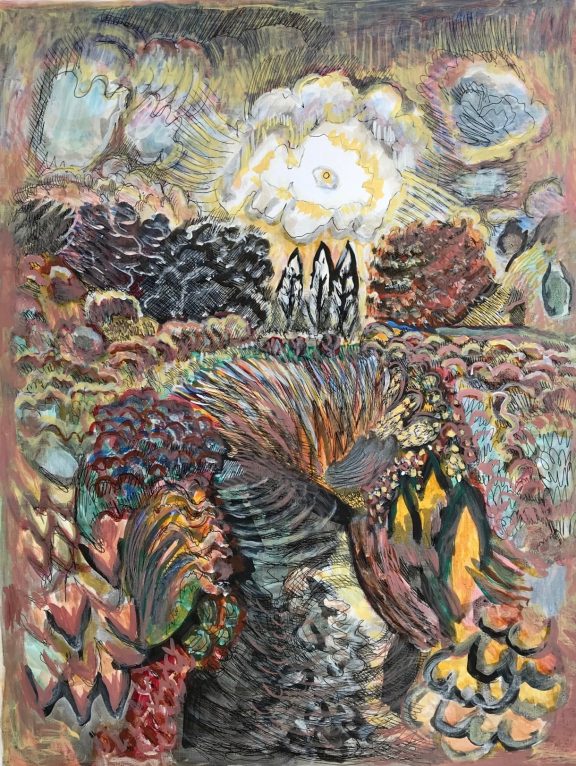
Oskar Kokoschka
When asked about his method of working, Milan suggested that words written about the Austrian artist Oskar Kokoschka, convey his own philosophy, coming from the same Central European cultural tradition:By combining impressionist technique with distortion of colour and form, Kokoschka’s work reflects the philosophical view that art should capture neither the formal nor the purely abstract, but a sense of movement and emotion, rendered through creative intuition and expressive and atmospheric artistic technique.’
from Rosa Berland, ‘The early portraits of Kokoschka – A narrative of inner life’
The works available in this Online Exhibition can be viewed below.
Clicking on an image will present a larger image together with details of the size of the work, materials used and price.
Work available in this Exhibition

Milan Ivanič
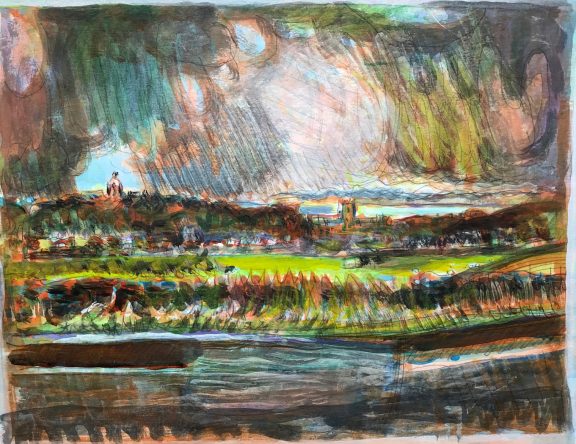
Milan Ivanič
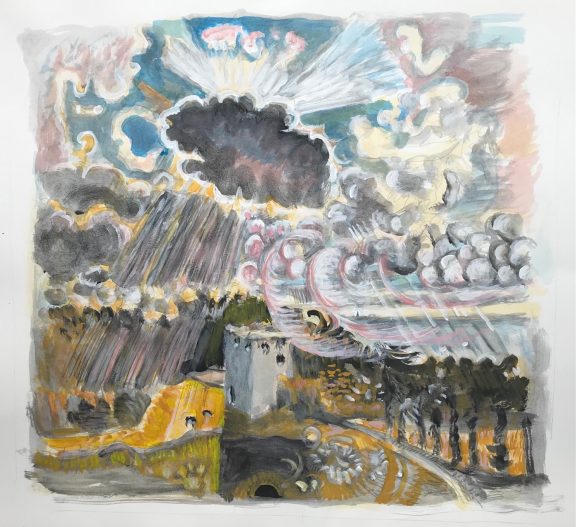
Milan Ivanič
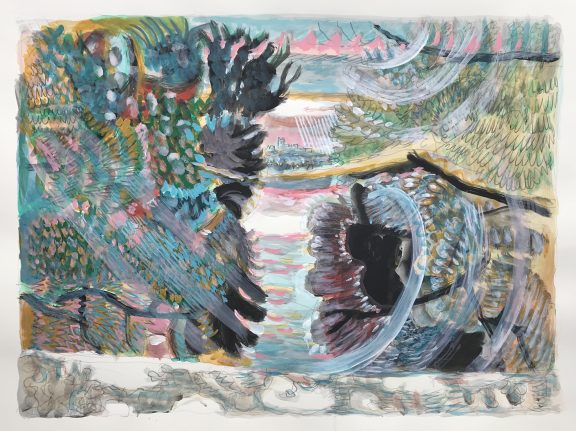
Milan Ivanič

Milan Ivanič

Milan Ivanič
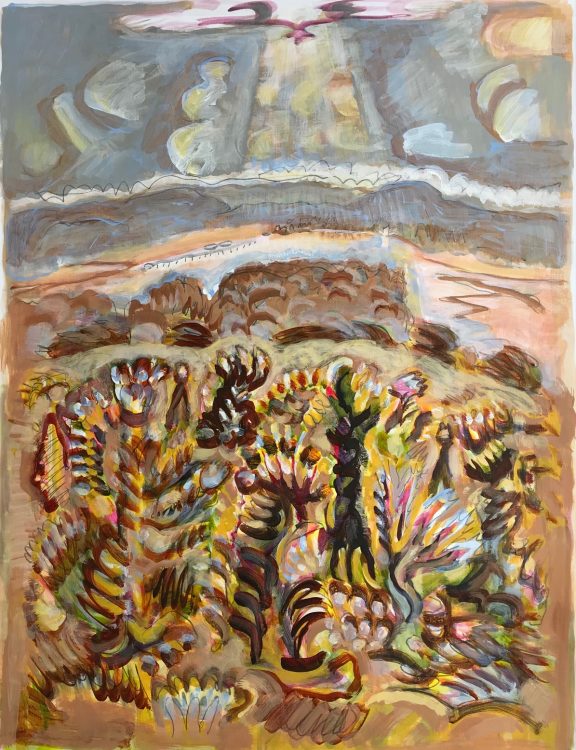
Milan Ivanič
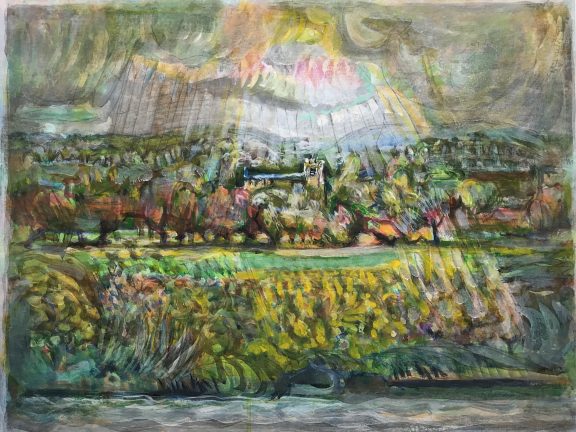
Milan Ivanič
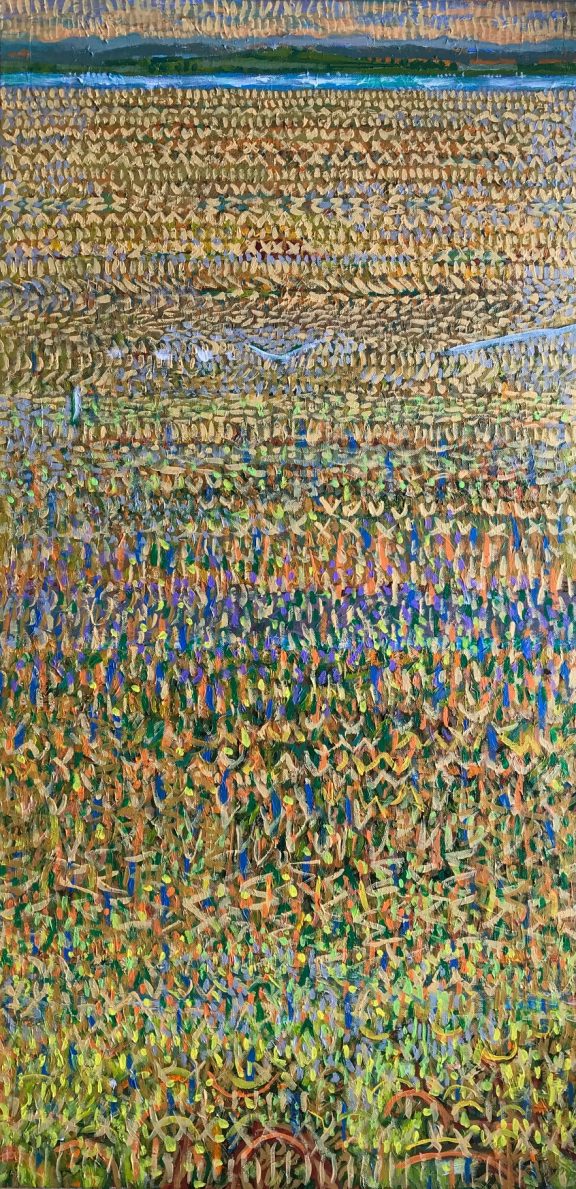
Milan Ivanič
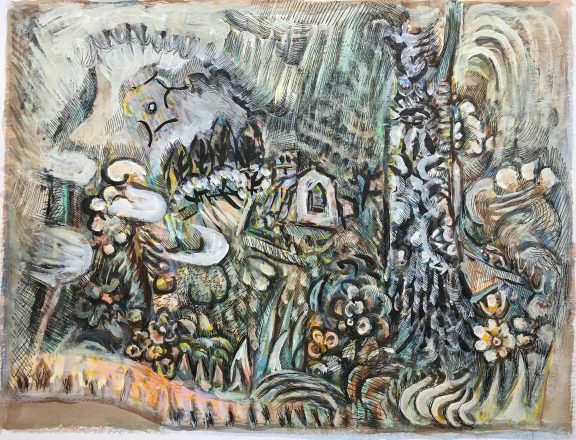
Milan Ivanič

Milan Ivanič

Milan Ivanič